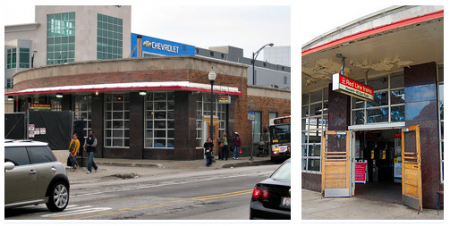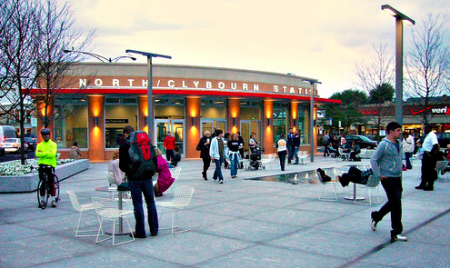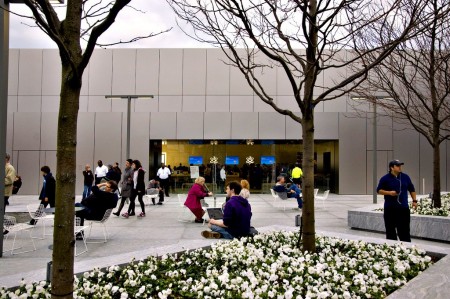I’ve been ruminating on #BigSociety for a while now as I try to recollect every aspect that would affect me. Wikipedia: The Big Society is the flagship policy idea of the UK 2010 Conservative Party general election manifesto and forms part of the legislative programme of the Conservative – Liberal Democrat Coalition Agreement. The aim … Continue reading “The #BigSociety is a #BetterSociety”
I’ve been ruminating on #BigSociety for a while now as I try to recollect every aspect that would affect me.
Wikipedia:
The Big Society is the flagship policy idea of the UK 2010 Conservative Party general election manifesto and forms part of the legislative programme of the Conservative – Liberal Democrat Coalition Agreement. The aim is “to create a climate that empowers local people and communities, building a big society that will ‘take power away from politicians and give it to people’.”
The plans include setting up a Big Society Bank and introducing a national citizen service.
The stated priorities are:
– Give communities more powers (localism and devolution)
– Encourage people to take an active role in their communities (volunteerism)
– Transfer power from central to local government
– Support co-ops, mutuals, charities and social enterprises
– Publish government data (open/transparent government)
That sounds amazing. I’ve been a fan of the idea of National Service ever since I spent fours years in the Territorial Army during college. There’s room for our standing army to become involved in the fixing of society by providing leadership and guidance. Getting people fit, teaching everyone basic first aid, explaining to people how things work and providing assistance to charities and volunteer organisations.
So, Big Society sounds amazing. What’s the problem?
The problem has generally been from the opposition (not surprisingly) and also reports from a lot of public sector-funded companies and quangos who are afraid of the coming cuts:
“There are strong, sensible ideas at the heart of the ‘Big Society’ vision… [but] for all its potential, the ‘Big Society’ raises a lot of questions, which become more urgent and worrying in the light of public spending cuts”
“The Government is simply washing its hands of providing decent public services and using volunteers as a cut-price alternative […] Public services must be based on the certainty that they are there when you need them, not when a volunteer can be found to help you”
We have to be pragmatic here – there will be cuts, they will be painful and they will be sweeping. But there are also areas where we can turn vulnerability into opportunity. Where we need to put the needs of the community above our own wants. While the political opposition can afford to count coup on the government by sniping about this, only the most deluded individual will deny there are cuts to be made. And only the most selfish would exclude themselves from involvement in the solution.
But what we’re talking about it not really #BigSociety but #BetterSociety.
Builds Bridges on Strong Foundations
We live in a divided society. There are marginalised young, abandoned elderly citizens and disaffected folk in the middle. It is not necessarily the job of the public sector to make up the lack of cohesiveness in our communities. Our own communities can be strong and they can be better than public service delivery: it stands to reason that locally run programmes should deliver what communities want as opposed to centrally run programmes.
Stand up and Own up
I am reminded of Pastor Martin Niemöllers “First they came…“. At what point, as public services degrade will you care enough to do more than change the channel/tweet/write a blog post?
Practical and Honestly Pragmatic
We have to be realistic about what levels of support we are going to receive and at what point do we step in and fix things. I hear too many public-sector quangos complaining about where the money is going to come from. Assuming there is no money: what happens? Look at those stated priorities above.
Collects Positive Actions
You can do something, everyone can do something. It can be taking on those extra student placements (and giving them something interesting to do that you’ve been putting off). It can be making sure you always tip at the coffee shop. It can even be as simple as always letting at least one person out at a junction when in the rush hour traffic.
My challenge to everyone is not what you can start, but why haven’t you joined up with efforts which are already going on? I’d like to invite anyone who has a #BigSociety-style idea to come along to some of the #Code4Pizza events we run – events which were aligned with the Big Society before the term became fashionable.
Companies which do stuff?
AirPOS and Rumble Labs – major contributors to StartVI, always willing to help local startups and individuals with ideas and dreams. They’ve been the folk who I’ve leaned most heavily upon over the last year.
LearningPool – launched MyLearningPool a couple of weeks ago which vastly decreases the spend for community and voluntary groups, charities and social enterprises for training.
The University of Ulster provides space and rooms to local social enterprise and has extensive engagement with the local voluntary sector.
Any more you can suggest?




